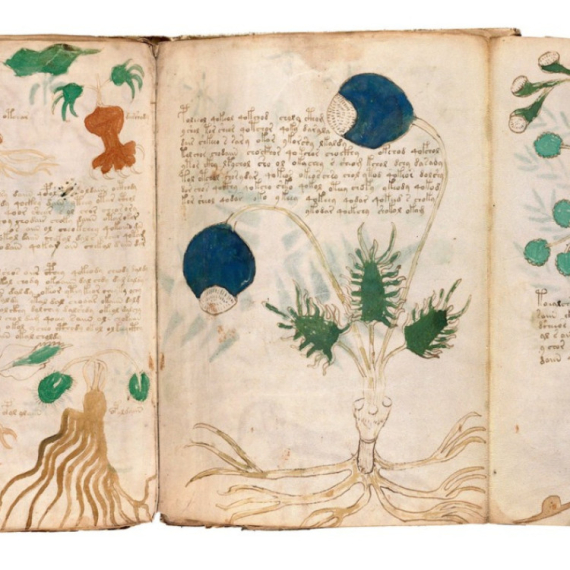EU says it received no Ban letter
Javier Solana’s spokeswoman could not confirm whether the letter sent by Ban Ki-moon to Brussels regarding EULEX had arrived.
Thursday, 28.02.2008.
10:00

Javier Solana’s spokeswoman could not confirm whether the letter sent by Ban Ki-moon to Brussels regarding EULEX had arrived. According to B92’s sources, the United Nations secretary-general sent a letter to the European Union letting it know that a number of UN Security Council members opposed the dispatch of an EU mission to replace UNMIK in Kosovo. EU says it received no Ban letter When asked by B92 yesterday, Christina Gallach did not wish to say whether the letter from the UN had arrived and whether it would affect the EU’s decision to send a mission to the province. “Solana has not received any letter from the UN secretary-general, as the media has stated. Solana wrote to Ban on Sunday regarding Brussels’ decision to send a mission to Kosovo. Solana met with one of Ban’s chief advisers yesterday to discuss the development of the situation in regions where the EU and UN are in close cooperation, especially in the Balkans and Kosovo. The EU and UN are in constant communication in regards to these issues,” Gallach said. According to Tanjug’s sources within the Security Council, Solana met in Brussels yesterday with, United Nations Under Secretary for Peacekeeping Operations Jean-Marie Guehenno, with whom he discussed cooperation between UNMIK and the EULEX. According to the EU’s plan, EULEX would assume control of a part of Kosovo’s administration from UNMIK after a transitional period of 120 days, while other administrative responsibilities would be accorded to the Albanian authorities in Pristina. “UNMIK-EULEX relations will depend on situation” Jean-Marie Guehenno told Tanjug in Brussels today that UNMIK would remain in Kosovo on the basis of Resolution 1244 and that the decision on future relations with the EU mission would depend “on the way events unfold on the ground.” Asked by Tanjug about the transfer of powers from UNMIK to EULEX, and about who could decide on this since the EU mission had been sent without UN approval, Guehenno replied that the UN did not use the term “transfer of powers.” “UNMIK continues to operate in Kosovo on the basis of Security Council Resolution 1244,” said the UN official. Guehenno, a French diplomat, added that it was “good” that the EU wanted to get involved in Kosovo, though he added that the decision on further UNMIK activities and relations with EULEX would be taken by UN Secretary-General Ban Ki-moon. “The decision will depend on the way things pan out on the ground,” he stressed and added that this was “the main factor in making appraisals and contributing to stability in Kosovo and the region,” stating that the UN would consult with all the relevant actors in that spirit. The UN official could not confirm whether Ban had replied to Javier Solana’s letter sent on Sunday concerning the EU mission. Although the deployment of the EU mission is already under way, it is still not clear how the EU intends to assume UNMIK’s powers in the domains of the police, justice and customs, when the UN has still not given the “green light” to the mission’s dispatch, and while Security Council members such as Russia view it as illegal. However, one Brussels analyst, Lucia Montanaro-Jankovski, does not expect there to be "any great problems with the transfer of powers", even though she points out that that area “is still rather unclear.” “For years, UNMIK has been transferring its powers to the temporary Kosovo institutions… That ought to continue after the independence declaration,” she stressed. The EU, though, remains silent on the matter. EU officials responsible for the issue stress, however, that they are “sure everything will fall into place,” and that “the EU will assume responsibility from the UN” following the expiry of the 120 day transition period envisaged by the Ahtisaari Plan. That 120-day period began on February 16, just before Pristina’s unilateral declaration of independence. The EU took the decision then to send the EULEX mission, thereby opening the door for the Kosovo Albanians’ decision. The EU has sent the EULEX mission unilaterally on the basis of a false interpretation of UN Security Council Resolution 1244. Namely, a document on the legal grounds for the dispatch of the EU mission, entitled “Joint Action”, cites the “incomplete” version of the resolution, omitting the key paragraph—paragraph 10—which makes reference to Kosovo’s “substantial autonomy.” The EU has omitted the second key part of that paragraph, which reads, “in order to provide an interim administration for Kosovo under which the people of Kosovo can enjoy substantial autonomy within the Federal Republic of Yugoslavia,” that is to say, Serbia, as Yugoslavia’s successor state.
EU says it received no Ban letter
When asked by B92 yesterday, Christina Gallach did not wish to say whether the letter from the UN had arrived and whether it would affect the EU’s decision to send a mission to the province.“Solana has not received any letter from the UN secretary-general, as the media has stated. Solana wrote to Ban on Sunday regarding Brussels’ decision to send a mission to Kosovo. Solana met with one of Ban’s chief advisers yesterday to discuss the development of the situation in regions where the EU and UN are in close cooperation, especially in the Balkans and Kosovo. The EU and UN are in constant communication in regards to these issues,” Gallach said.
According to Tanjug’s sources within the Security Council, Solana met in Brussels yesterday with, United Nations Under Secretary for Peacekeeping Operations Jean-Marie Guehenno, with whom he discussed cooperation between UNMIK and the EULEX.
According to the EU’s plan, EULEX would assume control of a part of Kosovo’s administration from UNMIK after a transitional period of 120 days, while other administrative responsibilities would be accorded to the Albanian authorities in Priština.
“UNMIK-EULEX relations will depend on situation”
Jean-Marie Guehenno told Tanjug in Brussels today that UNMIK would remain in Kosovo on the basis of Resolution 1244 and that the decision on future relations with the EU mission would depend “on the way events unfold on the ground.”Asked by Tanjug about the transfer of powers from UNMIK to EULEX, and about who could decide on this since the EU mission had been sent without UN approval, Guehenno replied that the UN did not use the term “transfer of powers.”
“UNMIK continues to operate in Kosovo on the basis of Security Council Resolution 1244,” said the UN official.
Guehenno, a French diplomat, added that it was “good” that the EU wanted to get involved in Kosovo, though he added that the decision on further UNMIK activities and relations with EULEX would be taken by UN Secretary-General Ban Ki-moon.
“The decision will depend on the way things pan out on the ground,” he stressed and added that this was “the main factor in making appraisals and contributing to stability in Kosovo and the region,” stating that the UN would consult with all the relevant actors in that spirit.
The UN official could not confirm whether Ban had replied to Javier Solana’s letter sent on Sunday concerning the EU mission.
Although the deployment of the EU mission is already under way, it is still not clear how the EU intends to assume UNMIK’s powers in the domains of the police, justice and customs, when the UN has still not given the “green light” to the mission’s dispatch, and while Security Council members such as Russia view it as illegal.
However, one Brussels analyst, Lucia Montanaro-Jankovski, does not expect there to be "any great problems with the transfer of powers", even though she points out that that area “is still rather unclear.”
“For years, UNMIK has been transferring its powers to the temporary Kosovo institutions… That ought to continue after the independence declaration,” she stressed.
The EU, though, remains silent on the matter. EU officials responsible for the issue stress, however, that they are “sure everything will fall into place,” and that “the EU will assume responsibility from the UN” following the expiry of the 120 day transition period envisaged by the Ahtisaari Plan.
That 120-day period began on February 16, just before Priština’s unilateral declaration of independence. The EU took the decision then to send the EULEX mission, thereby opening the door for the Kosovo Albanians’ decision.
The EU has sent the EULEX mission unilaterally on the basis of a false interpretation of UN Security Council Resolution 1244.
Namely, a document on the legal grounds for the dispatch of the EU mission, entitled “Joint Action”, cites the “incomplete” version of the resolution, omitting the key paragraph—paragraph 10—which makes reference to Kosovo’s “substantial autonomy.”
The EU has omitted the second key part of that paragraph, which reads, “in order to provide an interim administration for Kosovo under which the people of Kosovo can enjoy substantial autonomy within the Federal Republic of Yugoslavia,” that is to say, Serbia, as Yugoslavia’s successor state.








































Komentari 10
Pogledaj komentare